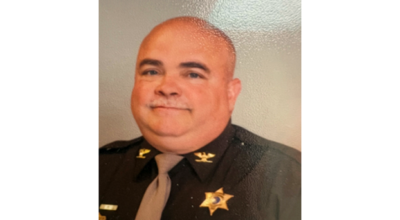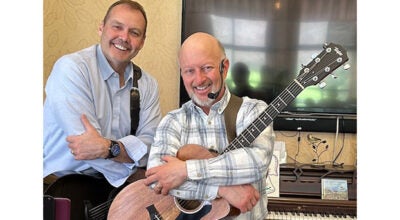Tyler’s eyes opened in Guatemala
Published 4:19 pm Thursday, March 7, 2013
“Nothing in my life” prepared Lindsay Tyler for her “exceptionally eye-opening experience” of seeing how a public hospital in Guatemala delivers health care.
“There was dirt everywhere. It was not lit. I didn’t feel comfortable walking into the emergency room. There was one doctor and a couple of gurneys with curtains wide open while treating individuals. In the maternity ward, there were 25 women younger than me with hardly any clothes on, their babies lying next to them. Fathers aren’t allowed to be there when the child is born unless they pay. They looked miserable,” she said. “We walked past the stairs down to the morgue, and there was blood everywhere because the elevator was not working. We went up to the surgery area, which is supposed to be sterile. Bugs could fly in with the door open.”
Tyler, a 2006 Union High School graduate, earned her bachelor’s degree from Grand Valley State University in 2010 and in August will finish her seven-year program with a doctorate in physical therapy.
In July, she took part in her first mission trip with seven fellow students to Guatemala, which “definitely changed my outlook,” Tyler told Dowagiac Rotary Club Thursday noon at Elks Lodge 889.
GVSU four years ago paired with Hearts in Motion, which does a variety of mission work in the Central American nation. Eight of them were accompanied by a professor and her daughter on the 10-day trip.
When they visited a day care, they presented bats and balls courtesy of Dr. Matt Cripe, Rotarian and local dentist.
“We gave them to the children,” she said, “but they did not really know how to play because soccer is the sport of choice, so we showed them how to play with a bat and ball.”
Tyler found her passion for physical therapy through sports.
She played softball, volleyball and tennis for the Chieftains.
While she was interested in a health-related career, it was not until she injured her shoulder that she knew she found her niche.
GVSU provided therapy services to 10 older women at a senior center.
“We also went to a nutrition center” in secluded Gualon in eastern Guatemala, Tyler said. “Eight orphans lived there. We did a feed for 100 children who come in every Thursday. We cooked them a meal. It was amazing to see their faces light up at a meal they otherwise would not have. People from that community also came in for physical therapy services, and we worked at a rehab facility (in Zacapa). We did 10 home visits.”
She went as a volunteer paying her own way, though family and friends sponsored her $2,500 sojourn.
“I’d never done any mission work outside the country,” Tyler said. “I’d love to go back to Guatemala or elsewhere.”
Motorcycles are the most popular mode of transport, so there is a need for physical therapy for those recovering from wrecks.
“A woman who fell off six months prior,” Tyler said, “had broken her hands. Until we saw her that day, she was not able to get up the stairs in her home to her room. She was able to walk up those stairs by herself. She was in a house with about 10 family members. It was great to help her accomplish something we’d take for granted.”
Another man, about 35, also recovering from a motorcycle mishap, traveled two hours to the clinic for his spinal cord injury.
“He was regaining function of his arms,” she said. “He was going to open his home in the mountains for his own rehab facility. He sold all his belongings to buy rehab equipment. That was a very inspiring story.”
“We did rehab for about six days of our 10-day stay,” Tyler said. “We were able to help 120 people in six days. A lot have cerebral palsy because they’re not getting the health care you’d get here through the birthing process. There are a lot of birth defects. Hearts in Motion takes people year-around, so when we left on a Saturday, another group was coming in on Monday. We also had the opportunity to work with physical therapy students.”
They flew into “very dangerous” Guatemala City, “but where we were stationed in the valley is very safe,” Tyler said. “Our interpreter from the States, who is about my age, lives there fulltime. I never felt unsafe. We stayed in a resort with running water. Food was safe for us to eat. But when you went to bed at night, you weren’t sure a bug wouldn’t end up with you when you woke in the morning. It was nicer than I anticipated it would be. One of my classmates is fluent in Spanish, which helped a lot because he has rehab knowledge our interpreters did not.”
“It was very hot,” she said of their stay in late July and early August. “The valley was very humid, like Michigan times two. When we went to Antigua (an island in the West Indies), it dropped 30 degrees. It was a great experience other than the weather.”
Tyler will walk at graduation in April.
“I don’t really know where I want to go, except I’d like to be somewhere in Southwest Michigan. I don’t have any aspirations to travel to California to practice. I’m very interested in neuro-rehab for regenerative diseases like MS (multiple sclerosis) and Parkinson’s, or spinal cord and brain injuries. I don’t know if I’ll work with children, but I do have a passion for children. Long-term, I don’t think I could do mission work fulltime, but I’d like to make it part of my career.”






